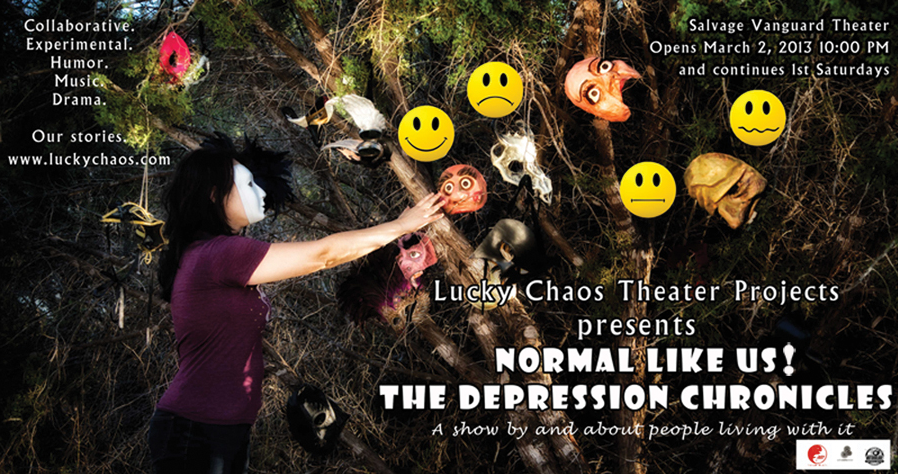I made a Storify about Elon James White‘s excellent explanation of ADD meds: Continue reading
Tag Archives: ADD
ADD Check-in
The hashtag #ADDcheckin has been active on Twitter since yesterday, when Elon James White started it so people could share their experiences. There’s some great stuff there, but I absolutely have to share this one:
One useful definition of ADD for me is "an inability to accurately conceptualize time." #ADDcheckin
— Brienne of Snarth (@femme_esq) April 2, 2015
I use time-tracking software just so that I’ll know how long I spend on specific tasks. Sometimes it helps me manage my time well, but mostly it just lets me document how long seemingly simple tasks can take me.
To put it another way, as I said to someone just yesterday, “We’ve probably been talking for 10 minutes or so, but if you told me it’s been an hour, I’d believe you.”
Here are a few other resources I’ve picked up today from people tweeting the hashtag: Continue reading
Exploring Depression, Bipolar, and More through Theater
“Normal Like Us – The Depression Chronicles” opened last night to a sold-out house at Salvage Vanguard Theater in Austin, Texas. I am very proud to have the opportunity to be a part of this show, and I hope that everyone has the chance to see it or something like it. (The show repeats the first Saturday of each month through August 2013.) Removing the stigma attached the mental health, by which I mean the negative assumptions, the incorrect or false beliefs, and the fear of judgment or ridicule (or the instinct to judge or to ridicule), is a cause to which I am committed.
Our show is both by and about people living with a variety of conditions tagged as “mental illness”: depression, anxiety disorder, attention-deficit disorder, bipolar disorder, Tourette’s syndrome, obsessive-compulsive disorder, and so on.
Note the frequent use of the word “disorder.” It is true that mental illness represents a lack of order, a disruption of order, or a complication or error in the mind’s best-functioning order. It is the responsibility of each person living with mental illness to do what they can to find an order that works for them, and I believe it is the responsibility of everyone else to support them. This support, in its broadest sense, may be adequate funding and resources for mental health treatment, but it is also education about the reality of mental illness. Most people living with mental illness are probably people you know or see every day. We need “support” in the form of understanding, attempts to learn, and the occasional bit of patience. We may never be able to see or live in the world in the same way as someone who is free of these “disorders,” but we already live alongside you.


